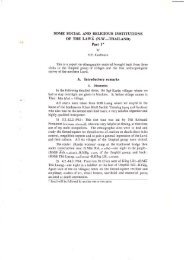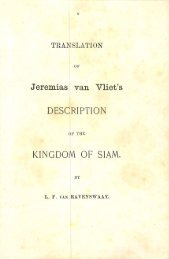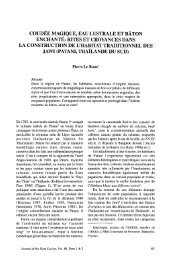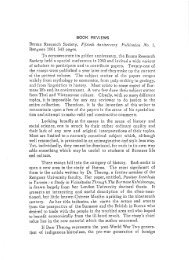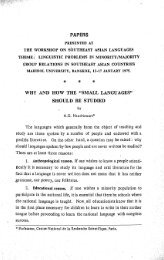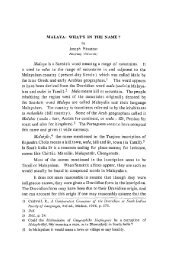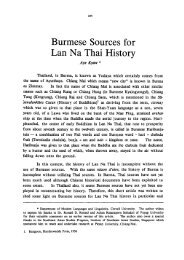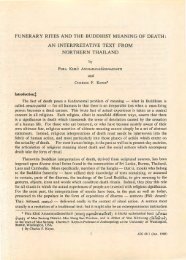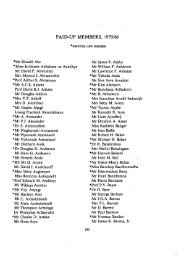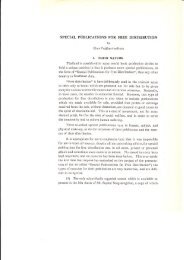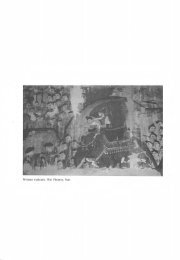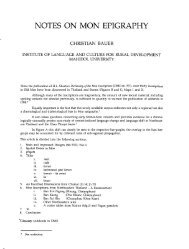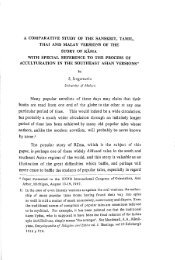REVKJEWS - Siamese Heritage Protection Program
REVKJEWS - Siamese Heritage Protection Program
REVKJEWS - Siamese Heritage Protection Program
You also want an ePaper? Increase the reach of your titles
YUMPU automatically turns print PDFs into web optimized ePapers that Google loves.
REVIEWS 139<br />
Dean K. Forbes's "Peasants in the City : An Indonesian Example" deals with<br />
the process by which an "informal sector" is created in an urban area. The author<br />
examines certain characteristics of a selection of trishaw riders in the city of Ujung<br />
Pandang and asserts that it is a part of the transformation of peasant society within<br />
the colonial mode of production. The author apparently employs a structuralfunctionalist<br />
explanation to such a social phenomenon.<br />
The last report, "Problems and Accomplishments: Kampung Asam Riang<br />
1967-1978", by Rosemary Barnard, presents an overview of changes in Kampung Asam<br />
Riang that have taken place during the period 1967-1978. Several aspects of quantitative<br />
change are reported, for example, population change, employment situation,<br />
occupation of women, mechanization of agricultural production and so on.<br />
The author contends that such changes are mainly caused by the introduction<br />
of government projects such as the irrigation scheme and the change in related infrastructures<br />
in the community. This essay is purely a description of what has taken<br />
place, in a particular period, in the village.<br />
Even though it is clear from the reports that changes have indeed taken place<br />
in rural Southeast Asia, many more important fundamental questions need to be asked,<br />
particularly, the consequence or the impact of such changes. Many people tend to<br />
assume that rural transformation is a "good thing" and uncritically attempt to have it<br />
done. For the reviewer, questions like: Does any effort to bring about change<br />
originate with the people involved? Does the project strengthen the economic and political<br />
power of a certain group, creating a more prosperous enclave, which then becomes<br />
resistant to change that might abolish its privileges? Does change generate a<br />
shift in power to the powerless ? Does it generate a process of democratic decisionmaking<br />
and a thrust toward self-reliance? Does it reinforce dependence on outside<br />
sources for materials and skills ? and so on and so forth.<br />
Answers to these questions are crucial, for it is evident that most changes that<br />
occur in the rural areas are change in form not in context. As we already know, the<br />
cause of rural poverty and other related socio-economic problems is not scarcity of<br />
agricultural resources, or lack of modern technology. Rather, the root of the cause is<br />
the increasing concentration of control over resources in the hands of fewer and fewer<br />
people.<br />
Faculty of Education,<br />
Silpakorn University,<br />
Nakorn Pathom<br />
Uthai Dulyakasem



